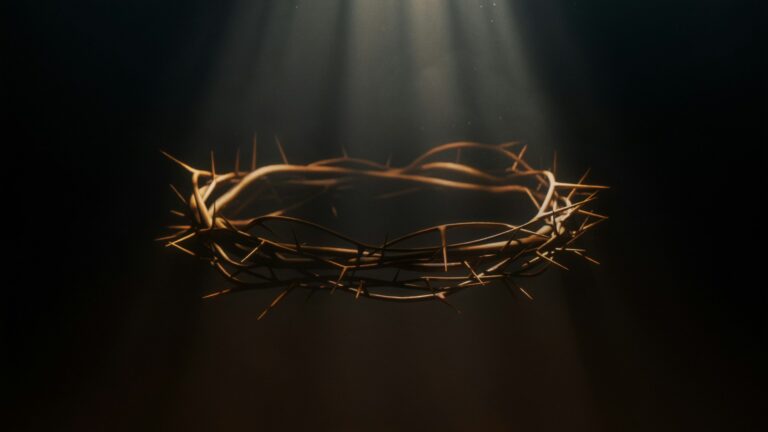In one of my favourite books, Knowing God, JI Packer calls balance “a horrible, self-conscious word.”
Balance is the pristine illusion of calm, serene, tranquility—undisturbed by the trials or the storms of life. A balanced life is a story without conflict, it is a person without desire—no risk, no reward; no pain, no gain. It is an appalling ambition.
The Christian life is more like a pilgrim’s life. It is the sobering reality of a long voyage ahead—turbulent, uncertain, dangerous—sure to be troubled by stormy seas and crashing waves.
Soon after recovering from a violent physical assault, Paul strengthened the souls of the disciples, encouraging them to continue in the faith, by saying, “through many tribulations we must enter the kingdom of God” (Acts 14:22).
Something like that is not encouraging or strengthening to anyone seeking a balanced life. But it is edifying and affirming to everyone who embraces the pilgrim’s life.
Momentary Synchronicity (in Theory)
Consider that a ship is built for the high seas, not for the safe harbour. Its fullest expression is when it is furthest out in the open water, where it is most vulnerable to sinking. In that moment, it is strongest and weakest at the same time.
Richard Pratt frequently undeceived and encouraged seminary students in a similar way, “Because the deck of life is always shifting, balance can be nothing more than momentary synchronicity.”
To keep balance we must shift our position, ever so tactfully, so as to remain standing in the storm.
In life or ministry, we can cut through the demands of a busy day, week, or season by tactfully shifting to seek rest in God’s presence, people, or promises.
Momentary Synchronicity (in Life)
Every winter, for my family, this kind of dynamic quest for momentary synchronicity goes from cute theory to real life.
Like balancing on a beachball, in the middle of a ship deck during a storm, our family often faces its toughest test during the cold, wintry, and dreary Christmas season.
Last year, we persevered through a long season of illness that included staying home on Christmas Day with nebulisers, steamers, lost voices, and high fevers. This year, after a heavy but satisfying season of ministry, we faced the familiar foe of our children falling ill.
Like little skiffs tossed by torrential waves, my wife and I feel most vulnerable when our children are unwell, waiting for recovery.
How do you explain the delirium of a high fever to an infant?
While a boat is most alive out on the sea, it is only in real danger if the water gets inside it. In the same way, suffering is painful when it gets into our lives. But it is most threatening to us if it gets into our hearts (John 16:33).
Our best hope in the worst storm is a prayer—often as short as the loud cry of the men with leprosy, “Jesus, Master, have mercy on us” (Luke 17:13).
We are not alone in our little skiffs, for the captain of our souls and the eternal calmer of storms is our refuge forever (Ps. 46:1-3).
New Year, Same Lord
In real vulnerability, our prayerful groaning appeals to God’s immutable authority. It reminds us he is as near to us as our next breath, and we are more dear to him than our children are to us.
In moments of weakness, little prayers from sighing hearts recenter us in God’s redemptive story that is larger than our lives, better than our circumstances, and worth more than all the gold in all the earth.
And so the balance shifts; from drowning in despair to weathering the storm.
For what we see in a storm is more important than how we feel: “We do not know what to do, but our eyes are on you” (2 Chron. 20:12, Matt. 14:30-31).
We look to him because he first looked at us. His eyes turned away from Jesus on the cross so they can be firmly fixed on those who look to Christ (Ps. 33:18).
We have yet to face a storm that does not submit to his voice or waves that do not obey it (Luke 8:25).
So onward into the new year we go—resisting any illusion of balance, embracing the inevitable voyage, and trusting in the same Lord of the storm, who fills us with the most satisfying hope any heart can enjoy: “now we see in a mirror dimly, but then face to face” (1 Cor. 13:12, Rom. 5:5).










